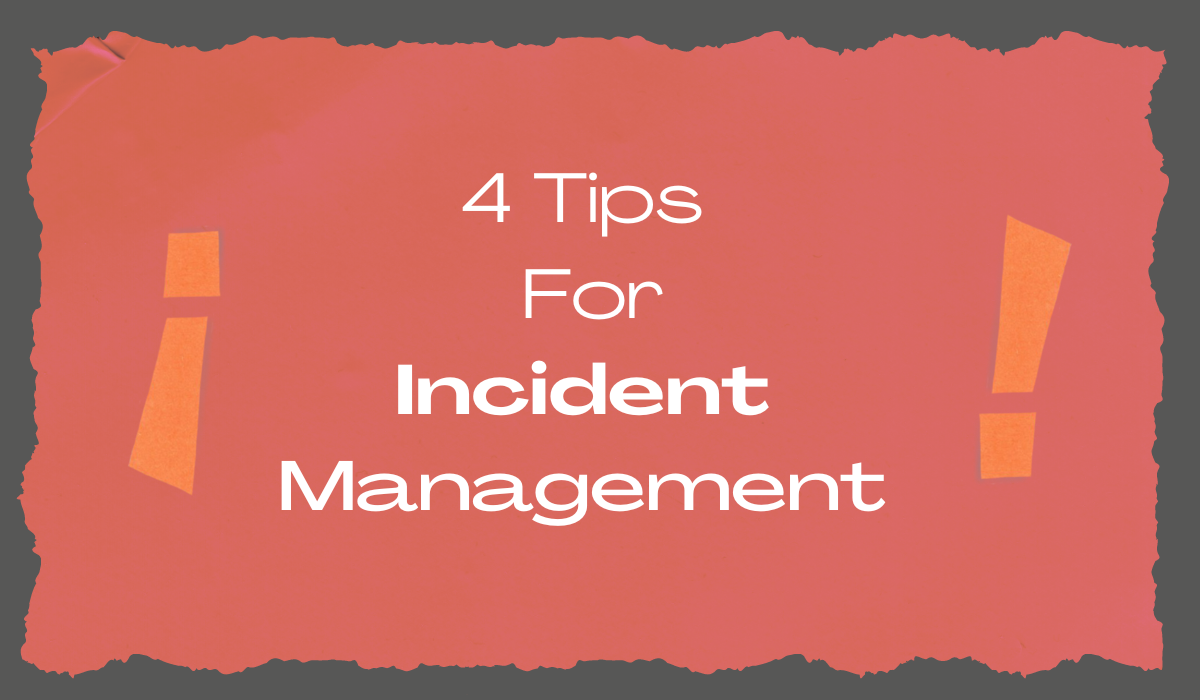Although we hope that nothing goes wrong while our customers are with their support mentors, sometimes things happen that we cannot predict or control. We call these emergencies “incidents”, and how you respond to them is very important. So here are 4 questions to ask yourself to help resolve an incident and stay safe during and after it.
4 questions to ask yourself in an emergency
- What am I feeling now?
- What do they feel, need and want?
- How is the environment affecting us?
- What’s the best thing I can do now?
1. What am I feeling now?
Before you try to support someone else, take stock of your own feelings. Incidents can leave you in a state of high emotions. Are you scared? Angry? Sad? Take a moment to recognise what you’re feeling and accept it as both real and important. If you don’t understand what you’re going through you will have a harder time understanding what someone else is going through.
Once you have an understanding of what you are feeling, consider what you can do about it. Take a second to calm yourself. A moment of clarity now can save time later because you’ll be more able to take charge of the situation.
2. What do they feel, need and want?
Now you understand what you feel, you need to understand the person you’re supporting. Consider what you know about them, their body language, and their immediate safety.
Ask them directly, if you can. If you can’t you need to make a snap judgement. This is where knowing your customer well is incredibly useful, because it allows you to assess what would benefit them most, even if they are currently unable to express it.
Remember the difference between feeling, needing, and wanting:
- Feeling: The emotions they are experiencing.
- Needing: Immediate health and wellbeing needs. You should not delay providing for someone’s needs.
- Wanting: What will assist their comfort and ability to handle the incident. You may delay in providing someone’s wants, as they may be unavailable or contradictory to what they need, but giving what they want as soon as possible during or after the incident will make things significantly easier.
3. How is the environment affecting us?
Incidents and environments are very strongly linked. Not only can incidents create uncomfortable or hazardous environments, they can also be caused by being in an uncomfortable environment.
That is why having the ability to affect or leave an environment is crucially important to managing an incident. Consider everything around you. Is the incident related to it? Is it safe to remain there? Can you leave the environment, or remove anything that is making things worse?
4. What’s the best thing I can do now?
With all of that in mind, it’s time to take definite action. Ask what you can do then do it. Once again, if you can ask your customer this question, you should. If you can’t, then use the information you’ve gathered from the previous questions to .
Among the things you can do, remember your customer should have an Personal Emergency Plan, and act upon it when you get the opportunity.
Thank you for reading. We hope that you never need to ask yourself these questions while providing support, but if you do then it’s better to know them than to be left in an incident. If you want to learn more essential skills while on supports, visit our Training page to learn about courses we offer for support workers and caregivers


Comments